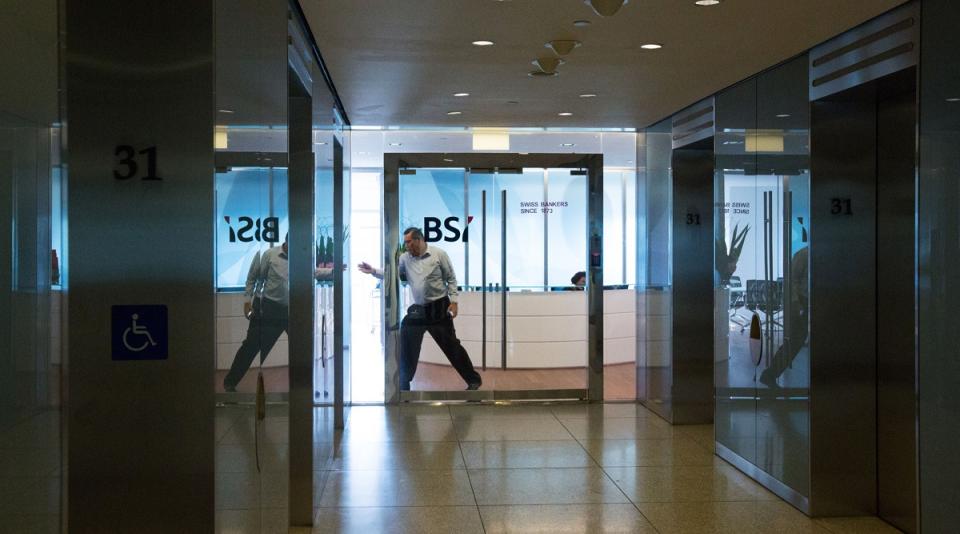Former BSI Singapore deputy CEO slapped with conditional warning and 10-year PO for 1MDB role

Various other BSI Singapore bankers had been dealt with earlier
Raj Sriram, former deputy CEO and head of private banking of BSI Bank, Singapore Branch (BSIS), has been issued a 24-month conditional warning from the police. He was also given a 10-year prohibition order by the Monetary Authority of Singapore.
Malaysian Jho Low, widely seen as the master mind of the 1MDB fund flows, was a client of BSI Singapore, a by now defunct private bank.
MAS withdrew BSIS’ licence in May 2016 due to serious and repeated breaches of AML/CFT requirements.
In Jan this year, the authorities had issued a “stern warning” against another former BSI banker, Kelvin Michael Swampillai, who was the bank’s head of wealth management services.
Swampillai, who was also hit with a lifetime prohibition order, was the supervisor of another BSI banker, Yeo Jiawei, who was sentenced to 54 months’ jail for his role in the whole 1MDB saga.
Yak Yew Chee, who was Low's relationship manager, and his subordinate Yvonne Seah Yew Foong had both been sentenced earlier.
Former Malaysian prime minister Najib Razak is now serving time for his role in the saga, with a purported US$4.5 billion in total siphoned off the country’s investment fund.
Besides Malaysian politicians, numerous bankers from the likes of Goldman Sachs and Falcon Bank were found to be involved in various capacities.
Failure to file SRTs
According to the police and MAS in their joint statement, Sriram was found to have contributed to BSI Singapore’s failure to file suspicious transaction reports regarding 1MDB-related transactions.
Specifically, BSI Singapore helped Low and his associates in business dealings between the various subsidiaries of 1MDB and Aabar Investments PJS, the purported subsidiary of the Abu Dhabi-based Aabar Investments PJS.
According to the Commercial Affairs Department, there were “reasonable grounds” for BSI Singapore to file suspicious transaction reports in respect of 1MDB-related transactions, as required by MAS.
“Due to Mr Sriram’s neglect, BSI Singapore did not file the STRs,” the joint statement reads.
As part of the conditional warning, Sriram has to pay $150,000 to the Singapore Government’s Consolidated Fund.
He is to also commit to “refrain from criminal conduct” for two years and to continue to cooperate with CAD in its 1MDB-related investigations.
Sriram is also not to accept any directorship positions or positions of similar substance or form for a period of four years, with effect from Sept 6 2021.
MAS notes that the ten-year PO on Sriram is warranted given how he held a senior position at BSI Singapore and his neglect had contributed to the bank’s failure to file the suspicious transaction reports.
“The authorities take a serious view of compliance with anti-money laundering (AML) and countering the financing of terrorism (CFT) laws, and reporting of suspicious transaction reporting,” the joint statement reads.
“BSIS, of which Mr Sriram was deputy CEO and head of private banking, was a key conduit for tainted funds in the 1MDB debacle,” says Ho Hern Shin, deputy managing director (financial supervision) at MAS.
“The ultimate responsibility for ensuring a financial institution’s compliance with AML/CFT laws and regulations rests with its board of directors and senior management.
“MAS will take to task errant board and senior management members whose failures result in their financial institutions violating laws and regulations,” she adds.
David Chew, director of the Commercial Affairs Department, says that suspicious transaction reporting regime is a key pillar of Singapore’s approach to anti-money laundering and countering the financing of terrorism.
“The Singapore authorities take a serious view of the obligation to file such reports, and strongly urge reporting entities to remain vigilant in detecting and reporting suspicious transactions.
“Officers of a financial institution are responsible for upholding the STR regime.
The Singapore authorities will not hesitate to take firm action against reporting entities or their officers, who intentionally or negligently fail to file suspicious transaction reports when legally obliged to do so,” says Chew.
See Also:
Click here to stay updated with the Latest Business & Investment News in Singapore
Goldman Sachs says China stocks may miss Party Congress boost
Goldman, Citigroup tell clients to bet big on the Singapore Dollar
Get in-depth insights from our expert contributors, and dive into financial and economic trends

 Yahoo Finance
Yahoo Finance 